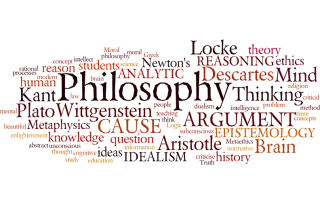 Welcome to our topic Introducing Philosophy! This topic introduces you this all new domain which is unlike any other discipline you might have encountered. Through the years, philosophy has been regarded as one of the foundations of knowledge of the entire humanity. What you are embarking into is a very interesting and colorful ride into the realm of unknown, as pronounced by the famous philosopher, Bertrand Russell. So, what are you waiting for, jump in and together, let’s enjoy learning together!
Welcome to our topic Introducing Philosophy! This topic introduces you this all new domain which is unlike any other discipline you might have encountered. Through the years, philosophy has been regarded as one of the foundations of knowledge of the entire humanity. What you are embarking into is a very interesting and colorful ride into the realm of unknown, as pronounced by the famous philosopher, Bertrand Russell. So, what are you waiting for, jump in and together, let’s enjoy learning together!
“Science is what you know. Philosophy is what you don’t know.” ~ Bertrand Russell
Intended learning outcomes (ILOs)
At the completion of this topic, you must be able to:
- Define philosophy and its branches.
What is Philosophy?
Philosophy is one of the oldest academic disciplines being studied worldwide. The word philosophy was coined by the Greek philosopher and mathematician Pythagoras of Samos. The term philosophy came from the Greek word philein which translates to “desire” or “love” and sophia which translates to “wisdom.” Hence, it literally translates to “love or desire for wisdom.” As used originally by the ancient Greeks, the term “philosophy” meant the pursuit of knowledge for its own sake, and comprised all areas of speculative thought, including the arts, sciences and religion.
There has been a great deal of definition of philosophy and some of them include:
- the discipline concerned with questions of how one should live (ethics); what sorts of things exist and what are their essential natures (metaphysics); what counts as genuine knowledge (epistemology); and what are the correct principles of reasoning (logic) (Wikipedia)
- investigation of the nature, causes, or principles of reality, knowledge, or values, based on logical reasoning rather than empirical methods (American Heritage Dictionary)
- the study of the ultimate nature of existence, reality, knowledge and goodness, as discoverable by human reasoning (Penguin English Dictionary)
- the rational investigation of questions about existence and knowledge and ethics (WordNet)
- the search for knowledge and truth, especially about the nature of man and his behaviour and beliefs (Kernerman English Multilingual Dictionary)
- the rational and critical inquiry into basic principles (Microsoft Encarta Encyclopedia)
- the study of the most general and abstract features of the world and categories with which we think: mind, matter, reason, proof, truth, etc. (Oxford Dictionary of Philosophy)
- careful thought about the fundamental nature of the world, the grounds for human knowledge, and the evaluation of human conduct (The Philosophy Pages)
Simply put, philosophy then is the careful investigation of the answers to the fundamental questions being asked by man with the emphasis more on the question rather than the answers.
Philosophical questions (unlike those of the sciences) are usually foundational and abstract in nature. Philosophy is done primarily through reflection and does not tend to rely on experiment, although the methods used to study it may be analogous to those used in the study of the natural sciences.
Branches of Philosophy
A philosophical branch is a broad division of the overall subject. A philosophical doctrine is a particular theory, principle, position, system, code of beliefs or body of teachings. These are the famous “-isms” of Philosophy.
Within each branch, there are any number of related, similar or opposing doctrines covering different aspects of the whole, although many doctrines overlap with, and may have repercussions in, more than one branch of Philosophy. The distinction between philosophical doctrines or theories, and the various movements or schools of philosophy is sometimes blurred.
- Metaphysics deals with the nature and existence of reality.
- Epistemology covers the study of knowledge, how and what we know.
- Ethics deals with the study of how people should act, and what is good and valuable.
- Aesthetics is the study of basic philosophical questions about art and beauty.
- Logic is the study of correct thinking and reasoning.
- Cosmology is the philosophical study of the universe.
- Theodicy is the philosophical study of supreme being.
References
The course references listed herein are available in the library of TIP Quezon City. I am not requiring you to purchase them. Maximize the use of library as you have paid it already in our miscellaneous fees. However, you may utilize any available and useful resource you deem helpful in your quest to become a true lover of wisdom.
- Stumpf, Samuel Enoch. (2008). From Socrates to Sartre. New York: McGraw Hill Publishing.
- Ramos, Christine Camela. (2004). Introduction to Philosophy. Manila: Rex Bookstore.
- Gaarder, Jostein. (2004). Sophie’s World. Great Britain: Phoenix House.
- http://www.plato.standford.edu
- http://www.philosophybasic.com